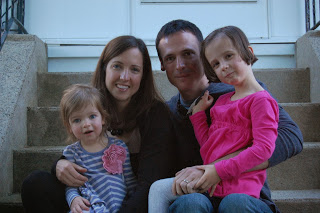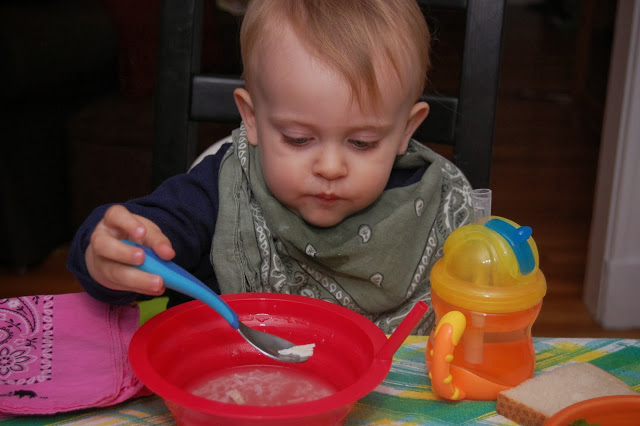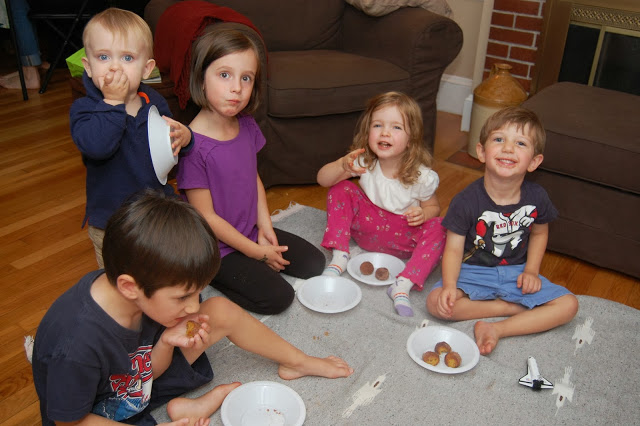After graduating college, Nate and I embarked on a journey as a newly minted family, leaving behind our home state for adventures in the uncharted beyond. Moving away from our families of origin was exciting! Graduate school and moves to the Midwest, the US capital, and across the Atlantic Ocean opened our eyes to different and interesting ways of thinking and living.
Along the way, we became parents. Welcome to the best learning experience of all! While we were thrilled about our growing family, we also encountered our share of challenges and foibles. None of our friends had kids yet, so we navigated the choppy new waters solo while they smiled and did their best to understand the dark circles and panicked voices. Without family in town to assist us, we floundered quite a bit on just what to do with our new bundle of joy. I chuckle to remember how we browsed stacks of parenting books promising new and different ways to achieve better results, as though she were a new iGadget instead of a person.
Although advice was still only a phone call away, the temptation of “the unknown better” beckoned louder. Eschewing family wisdom for propaganda, we replaced the village with pop science. Whereas pride in continuing our families’ traditions was once the goal long ago, shiny-new-object syndrome stepped in and took over.
Unfortunately, our manic pursuit of novelty did not improve our lives. The promise that the latest parenting trend would solve our problems didn’t deliver. We were paralyzed by choice and growing dizzy from the pendulum of polarized philosophies. Put simply, we were not happy parents.
After welcoming another baby and moving again, this time to Boston, we made a conscious decision to slow down. We purged boxes of unnecessary clutter and broken toys. We donated those parenting self-help books and began developing simplified routines. I made changes to my online behavior too, which I realized was raising my insecurity. Through the rose-colored looking glass of electronic voyeurism, my parenting had taken on a competitive edge. To combat the negativity, I chose to engage with people more in person and less on Facebook.
When we quieted the external noise, we were able to focus instead on our instincts. Abandoning the parenting advice du jour and the digital culture of one-upmanship freed us to remember what we already knew, that our ancestors had handed down more than just heirloom punch bowls. Our families had also passed down collective wisdom in their loving and generous way, and all we needed to do was tap into it.
Given Michael Pollan’s tenet of eating food your great grandmother would recognize, it seemed dinner was the easiest place for us to introduce and incorporate those former traditions. Great grandma wouldn’t recognize processed food. She wouldn’t recognize fast food. She would insist that her family gather at the dinner table together without distraction. We knew it would be a struggle to change, but for the first time, we felt our decisions were being made on solid ground.
Part of simplifying our lives meant living with fewer strict rules. Thus, going back to our roots didn’t mean that we had to forgo modern assistance completely. Because establishing a new dinner routine involved swimming against the current, we sought reinforcements via the folks at a local grassroots movement called The Family Dinner Project. With their encouragement, we made the commitment to eat dinner as a family, made it simple, and perhaps most importantly from our kids’ viewpoint, made it fun.
******************
Although making dinner more fun was initially focused on the kids, we also wanted to make it a priority when we planned a dinner party with neighbors. Selecting a date was challenging; we found it easier to plan the dinner on the spot when we all happened to be chatting outside one day. Working on the fly, I defrosted two soups that came from my grandmother’s recipes, chicken with rice and beef vegetable—fitting, it seemed, for our renewed interest in heritage living—and served them with bread and salad. The kids even helped set the table, make the salad, and wash dishes.
Soup is laughably un-dinner party fare; in fact, I think at one point I glumly declared that it looked as if I had dumped a bunch of cans of Campbell’s into a pot. Even so, we consider our first neighborhood dinner party a great success! The Family Dinner Project gave us interesting ideas for conversation, but as it turned out, everyone involved was enthusiastic about sharing stories, even when they included difficult or vulnerable moments. We admitted to each other how stressful it can be to get dinner on the table, how many other priorities encroach on that time, and how we carry that guilt with us when we’re not successful. It was refreshing to share and hear such honesty without pretense, and the meal seemed to serve as a catalyst for those emotions.
Nate and I recently read The Secrets of Happy Families, so we happily relayed to the group what we had gleaned about family dinners. Namely, it’s not necessarily important that the meal be homemade or even that you sit down to dinner together every night; instead, it’s vital to show an active interest in your children’s daily activities. We shared a simple game called Rose and Thorn from FDP that offers a way not to save children from stress but simply help them recognize and navigate through the stressful moments and celebrate the happy ones.
Our friends who have two children and both work different schedules found it relieving to hear they could still find a way to fit in meaningful conversations with their kids into their hectic days. Our friends who have a young toddler discovered for the first time that he enjoyed soup; they returned to our home the next day to thank us, saying they had made their own first pot of chicken soup with rice. Our kids beamed at the praise from our neighbors, who were genuinely impressed with their helping skills. It appeared the evening had offered unique rewards for each family, as we hoped it would.
******************
What I learned from this experience is that even if we can’t return to the village of yore, we can create our own community, built from genuine respect and common goals. By gathering together in a supportive environment, we harness the collective power of the group and learn from each other. The kinds of things we used to learn within the family (e.g. when you can feasibly feed kids soup and what recipes you like, all the while sharing challenges and laughing at imperfections) can now be accomplished within our newly constructed village.
We have to work. We even have to buy McDonald’s sometimes. But when we can slow down and simplify, we do. As Stephen Colbert would say, “And so can you.” Remember that you’re not alone! Seek the comfort and support of friends. And when you need it, extra help from The Family Dinner Project is there for the taking.
Justine Uhlenbrok blogs at The Lone Home Ranger, where a slightly different version of this post appeared.



